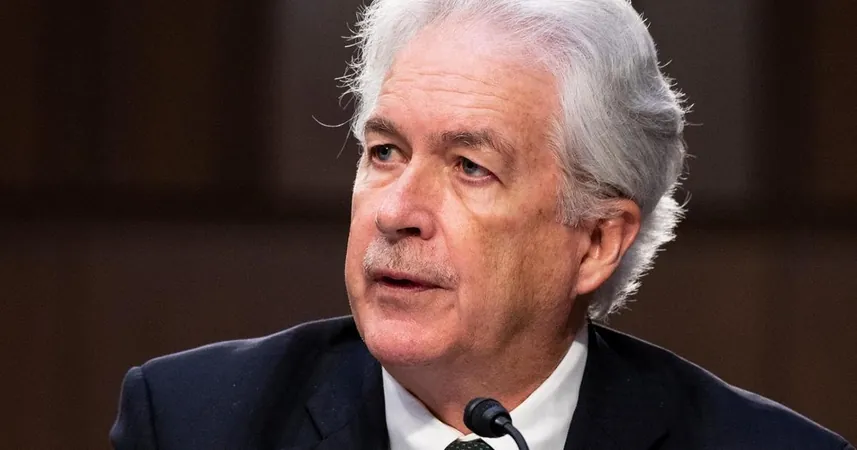
CIA Chief Urges Caution: Could Misjudgments Ignite a Broader Middle East Conflict?
2024-10-08
Author: Ming
CIA Director's Warning
In a stark warning about rising tensions in the Middle East, CIA Director William Burns stated on Monday that ongoing clashes could escalate into a wider regional conflict. Despite recent intelligence suggesting that the leaders of Iran and Israel are not currently seeking 'all-out conflict,' Burns underscored the precarious nature of the situation.
Clashes and Responses
During a question-and-answer session at the annual Cipher Brief threat conference held in Sea Island, Georgia, Burns clarified, 'We face the very real danger of a further regional escalation of conflict.' He noted that Israel's leadership is carefully considering its response to Iran's recent ballistic missile assault, a move that could provoke unintended consequences if miscalculations occur. 'The Middle East is a place where complicated stuff happens all the time,' he remarked, highlighting the complexity of the geopolitical landscape.
Missile Interception and Military Capabilities
Burns attributed the successful interception of a large-scale missile attack from Iran on October 1 to effective intelligence-sharing between the U.S. and Israel, alongside 'strong' integrated air defense systems. While he acknowledged that the attack revealed some limitations in Iran's military capabilities, he stressed that Tehran's potential for harm remains a significant concern for both Israel and the United States.
Nuclear Proliferation Concerns
Furthermore, Burns addressed nuclear proliferation concerns, noting that there are no current indications that Iranian Supreme Leader Ayatollah Ali Khamenei has decided to revive efforts toward weaponizing nuclear material. However, he did warn that Iran is now in a position to produce enough weapons-grade material for a single bomb within about a week, a critical point of contention in international diplomacy.
Humanitarian Crisis in Gaza
Looking to the ongoing humanitarian crisis in Gaza one year after Hamas militants' deadly incursion into southern Israel, which resulted in more than 1,200 deaths and significant kidnappings, Burns expressed cautious optimism about the prospects for a ceasefire. His involvement in diplomatic negotiations with Qatar, Egypt, and Israel has spotlighted the sluggish progress. 'We've come close at least a couple of times, but it's been very elusive,' he stated, urging all parties to break the current stalemate, exacerbated by Hamas leader Yahya Sinwar's lack of response to new proposals.
Political Will and Future Prospects
Burns emphasized that achieving a resolution requires political will and hard choices from leaders involved in the negotiations. 'In the end, it's not just about brackets in texts or creative formulas when you're trying to negotiate a hostage and ceasefire deal. It's about leaders who ultimately have to recognize that enough is enough,' he said. The fate of many hostages and the potential for peace hinges on the willingness of those leaders to compromise for the sake of stability and a brighter future for the region.
Global Attention
As tensions simmer, the global community watches closely. Will leaders rise to the occasion and chart a new path toward peace, or will miscalculations lead to an unforeseen escalation?



 Brasil (PT)
Brasil (PT)
 Canada (EN)
Canada (EN)
 Chile (ES)
Chile (ES)
 España (ES)
España (ES)
 France (FR)
France (FR)
 Hong Kong (EN)
Hong Kong (EN)
 Italia (IT)
Italia (IT)
 日本 (JA)
日本 (JA)
 Magyarország (HU)
Magyarország (HU)
 Norge (NO)
Norge (NO)
 Polska (PL)
Polska (PL)
 Schweiz (DE)
Schweiz (DE)
 Singapore (EN)
Singapore (EN)
 Sverige (SV)
Sverige (SV)
 Suomi (FI)
Suomi (FI)
 Türkiye (TR)
Türkiye (TR)